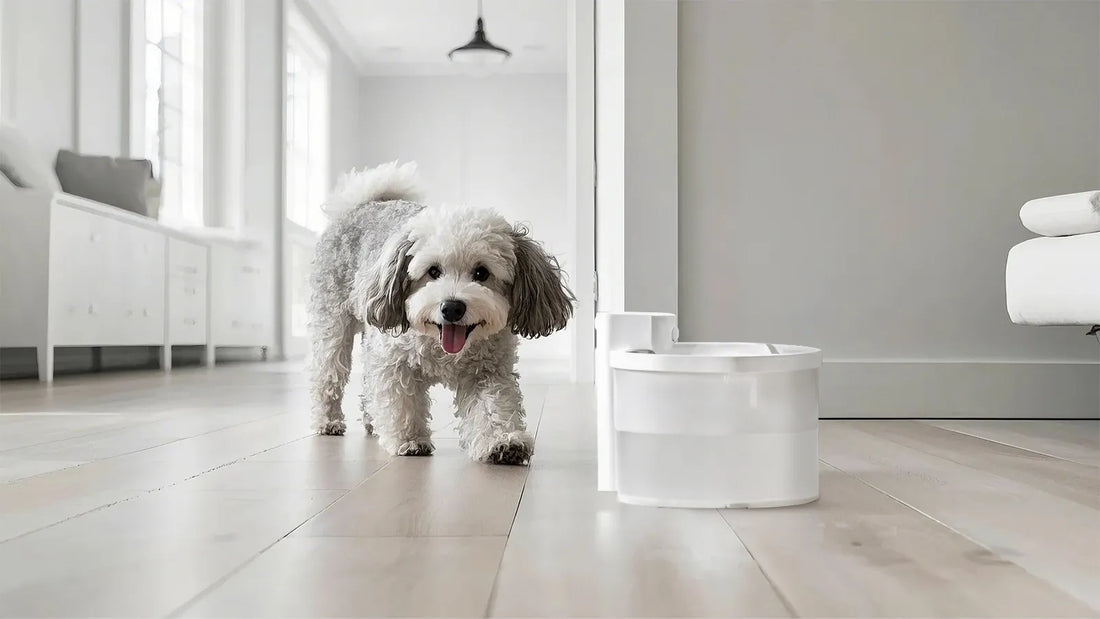Have you ever noticed your dog nudging her food bowl and wondered what it means? This seemingly odd behavior can be puzzling for pet owners, but it often holds significant clues about your dog's needs, emotions, or health. Understanding why your dog keeps nudging her food bowl can help you address the underlying cause and ensure your furry friend is happy and healthy.
Understanding Your Dog's Behavior
Dogs communicate in various ways, and nudging their food bowl is one of them. This behavior can stem from a range of reasons, from simple hunger to more complex emotional or health-related issues. By observing your dog's actions and considering the context, you can gain valuable insights into what she might be trying to tell you.
Common Reasons Why Dogs Nudge Their Food Bowls
There are several common reasons why your dog might be nudging her food bowl. Let's explore some of the most frequent causes:
Hunger or Appetite
One of the most straightforward reasons is hunger. If your dog is nudging her food bowl, she might be trying to tell you that she's ready to eat. Dogs have a keen sense of routine, and if feeding time is approaching, she might be signaling her readiness for a meal.
Attention-Seeking Behavior
Dogs are social animals and often seek attention from their owners. Nudging the food bowl can be a way for your dog to grab your attention, especially if she feels ignored or wants to interact with you. This behavior can be reinforced if you respond by giving her food or attention.
Boredom or Lack of Stimulation
If your dog is bored or lacks mental and physical stimulation, she might resort to nudging her food bowl as a way to entertain herself. This behavior can be a sign that she needs more activities, toys, or exercise to keep her engaged and satisfied.
Discomfort or Pain
In some cases, nudging the food bowl could indicate discomfort or pain. Dental issues, mouth sores, or other health problems might make eating uncomfortable for your dog. If you notice other signs of distress, such as reluctance to eat or changes in behavior, it's essential to consult your veterinarian.
Environmental Factors
The environment where your dog eats can also influence her behavior. If the food bowl is placed in a noisy or high-traffic area, your dog might feel stressed or distracted, leading her to nudge the bowl. Ensuring a calm and quiet feeding area can help alleviate this issue.
How to Address Your Dog's Food Bowl Nudging
Once you've identified the possible reasons behind your dog's behavior, you can take steps to address it. Here are some practical tips to help you manage and reduce food bowl nudging:
Establish a Consistent Feeding Schedule
Maintaining a regular feeding schedule can help your dog feel secure and reduce her need to nudge the bowl. Stick to specific times for meals and avoid feeding her outside of these times to reinforce the routine.
Provide Adequate Mental and Physical Stimulation
Ensure your dog gets enough exercise and mental stimulation throughout the day. Interactive toys, puzzle feeders, and regular playtime can keep her entertained and reduce boredom-related behaviors like nudging the food bowl.
Create a Calm Feeding Environment
Choose a quiet and comfortable spot for your dog's food bowl. Minimize distractions and ensure she feels safe and relaxed while eating. This can help reduce stress and make mealtime more enjoyable for her.
Monitor Your Dog's Health
If you suspect that your dog's food bowl nudging is related to health issues, consult your veterinarian. Regular check-ups and prompt attention to any signs of discomfort or illness can help keep your dog in good health.
Reinforce Positive Behavior
Encourage and reward positive behaviors during mealtime. If your dog eats calmly without nudging the bowl, praise her or offer a small treat. This can help reinforce the desired behavior and reduce the frequency of nudging.
When to Seek Professional Help
While many cases of food bowl nudging can be addressed with simple changes, there are times when professional help might be necessary. If your dog's behavior persists despite your efforts, or if you notice other concerning signs, such as weight loss, lethargy, or changes in appetite, it's crucial to seek advice from a veterinarian or a certified animal behaviorist.
Understanding why your dog keeps nudging her food bowl is the first step toward addressing the behavior effectively. By paying attention to her needs, providing a stimulating environment, and ensuring her health, you can help your dog feel more comfortable and content during mealtime. Remember, every dog is unique, and what works for one might not work for another. Stay patient, observant, and proactive in meeting your dog's needs, and you'll likely see positive changes in her behavior.













